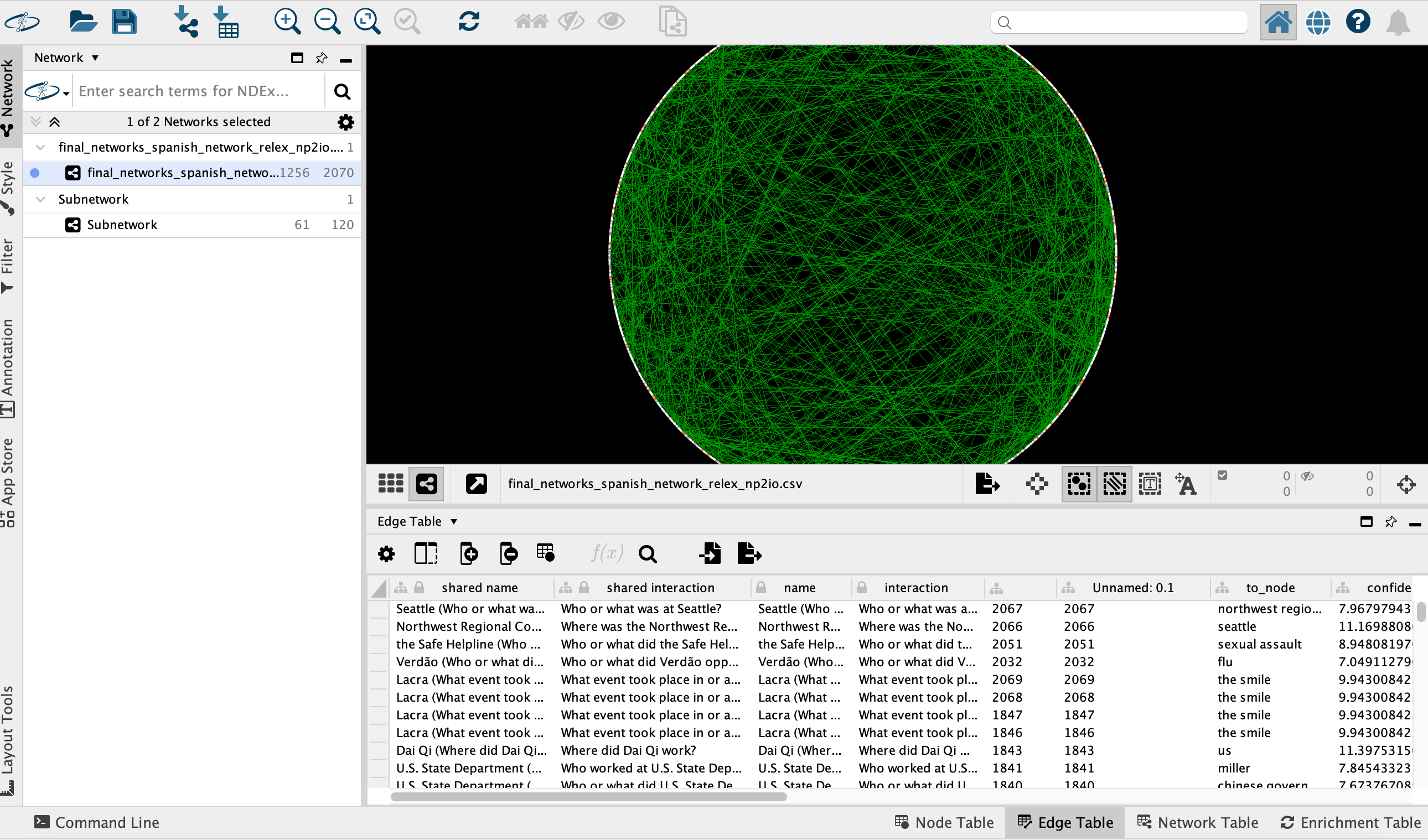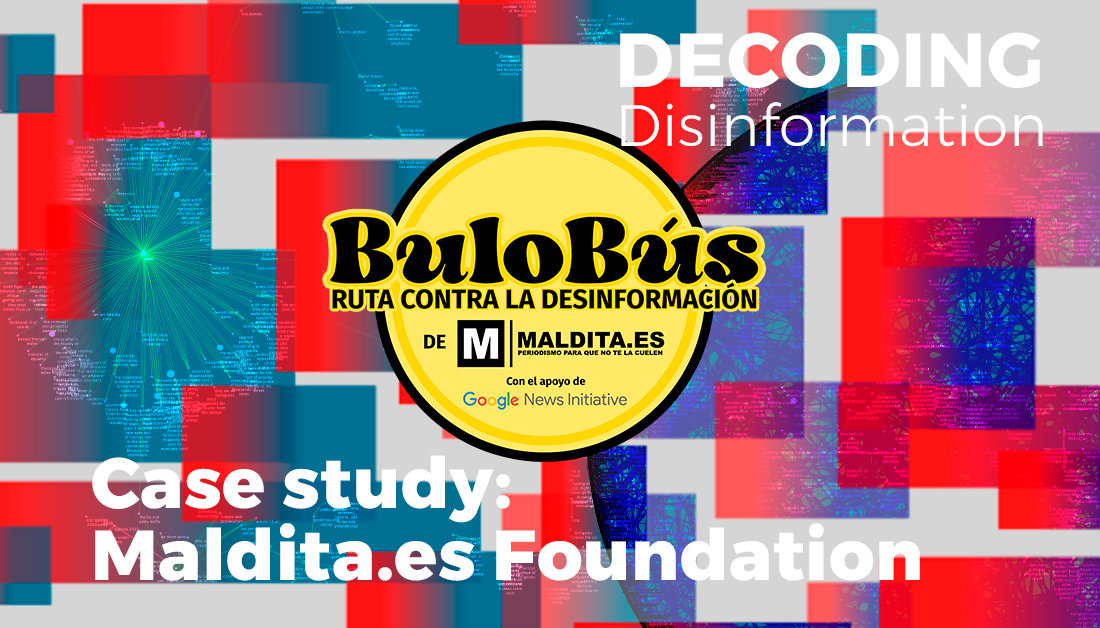The International Press Institute (IPI) has released a big-data case study exposing a campaign to intimidate and discredit the Spanish foundation Maldita.es earlier this year. Maldita.es, an nonprofit organization of journalists that exposes falsehoods and misinformation, became the subject of a campaign by conspiracy theorists, anti-vaxxers, and denialists in the run-up to the municipal and regional elections in Spain that took place on May 28, 2023.
The campaign aimed to undermine the “BuloBús: Tour against disinformation” project, a media literacy initiative by the Maldita.es Foundation with the support of Google News Initiative. The project involved a van with six journalists and expert trainers traveling to 20 towns in Spain between April 11 and May 19, helping the public identify and debunk rumors and scams received through mobile phones. The initiative included activities such as an information point with educational materials, a course on disinformation for young people, and a small theatrical performance.

Journalists and trainers from Maldita.es Foundation in one of the stands of their BuloBús (HoaxBus) project. Photo: Maldita.es. April-May 2023.
Soon after the project was announced on April 10, dozens of accounts on X (formerly Twitter) associated with conspiracy theorists as well as various Telegram channels organized to undermine Maldita.es’s activities in the scheduled locations. In addition to attacks on social media, members of these groups physically demonstrated in front of the stand of BuloBús (which translates to “HoaxBus”) with signs labeling the journalists and the organisation as “censors” and “accomplices of genocide”, among others terms. Due to the content of the messages spread on social media, the foundation’s management decided to report the campaign to the authorities and contacted all municipalities to request security support in each location.
According to Maldita.es, the actions targeting its activities were organized in 9 of the first 10 towns on the BuloBús itinerary.
Faced with this scenario, Maldita.es changed its strategy for the second leg of the route and requested the modification of all dates without public disclosure, aiming to avoid the organized efforts attempting to disrupt its activities in each municipality.

Graph 8.
IPI’s study applied AI-based technology developed in Austria and the United States to analyze 22,440 accounts on X, 1.5 million interactions between them, and over 800,000 messages on social media (Telegram and X). The report reveals how coordination among these conspiracy groups on Telegram hindered the organic reach of Maldita’s media literacy initiative, analyzes the disinformation narratives used to discredit Maldita.es’s work, and exposes some of the key actors who encouraged these actions and the channels used to spread narratives and actions against the organization in Spain.
The effort to discredit and undermine the BuloBús initiative is an example of how campaigns against independent media and attacks on social networks serve to reinforce conspiracy narratives aimed at misinforming the public. This case is particularly illustrative as one of the consequences of the campaign was that it made it more difficult for residents of the towns in question to (physically) access a source of evidence-based independent information.
This is the fourth case study released as part of the project Decoding the Disinformation Playbook. IPI, taz, and Faktograf are working together to decode populist propaganda in Europe targeting fact-checkers and investigative journalists – who are both essential players in the fight against disinformation.
The project is supported by the European Media and Information Fund, managed by Calouste Gulbenkian Foundation.



